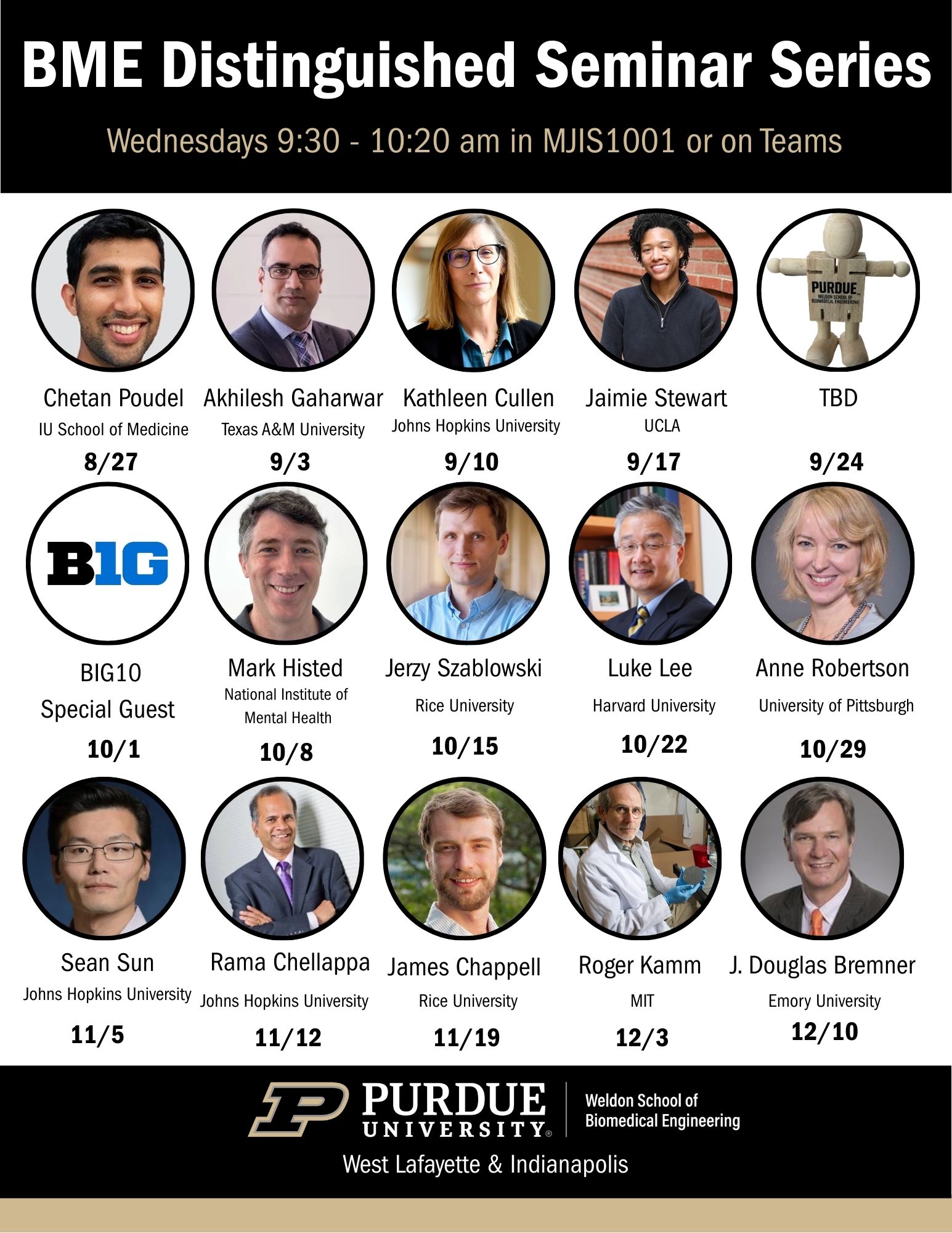Genetically engineering microbial consortia and non-model microbes using programmable RNA tools with James Chappell, Associate Professor of BioSciences, Rice University
| Event Date: | November 19, 2025 |
|---|---|
| Time: | 9:30 - 10:20 am |
| Location: | MJIS 1001 and via Teams |
| Priority: | No |
| School or Program: | Biomedical Engineering |
| College Calendar: | Show |
| Physical Address: | 206 S. Martin Jischke Dr. |
Abstract
Microbial consortia are found almost everywhere (e.g., in soils, rivers, and guts and on skin, minerals, and built materials) and underlie processes critical to sustainable agriculture, waste treatment, the longevity of materials, and health. Current microbiome engineering approaches primarily rely on domestication, whereby individual species are isolated, genetically manipulated in the lab, and then reintroduced back into microbiomes. However, this approach can be arduous and incompatible with the large fraction of uncultured microbes found in native microbiomes. The overarching goal of my group is to establish a framework to create genetic programs that are efficiently transferred into natural consortia, can be precisely controlled, and can actuate useful genetically-encoded functions in these communities (e.g., biosensing, antibiotic, production of metabolites). To achieve this, we innovate RNA technologies that allow us to efficiently transfer, control, and actuate programs in native consortia and non-model microbes for diverse applications in biotechnology and biomedicine.
Biography
James received his PhD from Imperial College London and performed post-doctoral research at Cornell and Northwestern University.
The goal of the Chappell lab is to forward our ability to understand and engineer the bacteria domain of life. Central to this is our ability to control how cells express their genetic code. Our lab focuses on understanding how the biomolecule RNA can be designed to create synthetic regulators of gene expression—allowing for the manipulation of natural cellular processes to elicit deeper biological understanding and for the engineering of new synthetic cellular functions. As such our lab focuses both on the creation of new gene regulatory tools and their application.
Students registered for the seminar are expected to attend in-person.
Teams ID and Passcode:
Meeting ID: 211 123 896 292 8
Passcode: Uh9qs2pf

2025-11-19 09:30:00 2025-11-19 10:20:00 America/Indiana/Indianapolis Genetically engineering microbial consortia and non-model microbes using programmable RNA tools with James Chappell, Associate Professor of BioSciences, Rice University MJIS 1001 and via Teams

